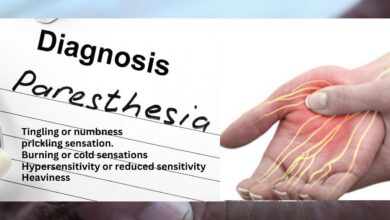
We all strive for better health, but sometimes we overlook simple changes that can make a big difference. One such change is the timing of our evening meal. Eating dinner early can significantly impact our overall health, yet it’s a practice many of us fail to adopt. This blog post will explore the health benefits of early dinner, using the PAS (Problem-Agitation-Solution) copywriting framework to illustrate why this change is worth considering.
The Hidden Costs of Late Dinners
In our busy lives, it’s easy to let dinner slip to the later hours. Whether it’s due to long work hours, social commitments, or simply a habit of late-night snacking, many of us end up eating dinner late. However, this habit can lead to several health issues:
1. Poor Digestion
Eating dinner late can interfere with digestion. When you eat late at night, your body doesn’t have enough time to properly digest the food before you go to bed. This can lead to discomfort, bloating, and even acid reflux. The digestive process slows down when you sleep, which means your food may not be digested efficiently.
2. Weight Gain
Several studies have shown a correlation between late-night eating and weight gain. When you eat late, your body is more likely to store the calories as fat rather than burning them for energy. This can lead to increased body fat and obesity, which are risk factors for various health conditions, including heart disease and diabetes.
3. Sleep Disruption
Eating a heavy meal late at night can interfere with your sleep. It can cause discomfort and indigestion, making it difficult to fall asleep and stay asleep. Poor sleep quality can have a ripple effect on your overall health, affecting everything from your mood to your immune system.
4. Increased Risk of Chronic Diseases
Consistently eating late dinners has been linked to an increased risk of developing chronic diseases such as diabetes and heart disease. This is partly due to the negative impact on your body’s circadian rhythms and metabolism, which can lead to insulin resistance and other metabolic disorders.
Agitation: The Real-Life Impact of Late Dinners
The consequences of late dinners aren’t just abstract health risks—they can have tangible impacts on your daily life. Let’s break down how these problems manifest in real-world scenarios.
1. Morning Fatigue and Low Energy
Imagine waking up feeling groggy and tired. You struggle to get out of bed, and your energy levels are low throughout the day. This is a common experience for those who eat dinner late. Poor digestion and disrupted sleep from late-night eating can leave you feeling fatigued and less productive.
2. Difficulty Managing Weight
If you’ve been trying to lose weight without success, late dinners might be part of the problem. Even with regular exercise and a balanced diet, eating late can make it difficult to shed those extra pounds. The calories consumed late at night are more likely to be stored as fat, sabotaging your weight loss efforts.
3. Digestive Discomfort
Frequent indigestion, bloating, and acid reflux can make life miserable. These symptoms can be exacerbated by late-night eating, affecting your comfort and quality of life. Over time, chronic digestive issues can lead to more serious health problems, including gastroesophageal reflux disease (GERD).
4. Increased Stress Levels
Late dinners can contribute to higher stress levels. Poor sleep quality can lead to increased stress and anxiety, making it harder to cope with daily challenges. This creates a vicious cycle where stress and poor sleep feed into each other, further harming your health.
Solution: Embracing Early Dinner for Better Health
Now that we’ve identified the problems and their real-life impacts, let’s explore the solution: eating dinner earlier. Making this simple change can have profound effects on your health and well-being. Here are the key benefits of an early dinner, backed by scientific evidence and practical examples.
1. Improved Digestion
Eating dinner early gives your body ample time to digest the food before you go to bed. This can lead to better digestion and reduced symptoms of indigestion, bloating, and acid reflux.
Example:
Consider the case of Maria, a 45-year-old woman who struggled with chronic indigestion. After shifting her dinner time from 9 PM to 6 PM, she noticed a significant improvement in her digestive health. She no longer experienced the discomfort and bloating that plagued her for years.
2. Better Weight Management
An early dinner can help with weight management. By eating earlier, your body has more time to burn off the calories before you go to sleep, reducing the likelihood of weight gain.
Example:
John, a 30-year-old office worker, found it difficult to lose weight despite regular exercise. Upon the advice of his nutritionist, he started having dinner at 6:30 PM instead of 8:30 PM. Over the next three months, he lost 10 pounds without making any other major changes to his diet or exercise routine.
3. Enhanced Sleep Quality
Eating dinner earlier can improve your sleep quality. With better digestion and less discomfort, you’re more likely to fall asleep easily and enjoy uninterrupted sleep.
Example:
Sara, a 28-year-old teacher, often had trouble falling asleep due to her late-night dinners. When she started eating at 6 PM, she found it easier to fall asleep and woke up feeling more refreshed. Her overall mood and productivity also improved significantly.
4. Reduced Risk of Chronic Diseases
By aligning your eating habits with your body’s natural circadian rhythms, you can reduce the risk of developing chronic diseases such as diabetes and heart disease. Eating early helps maintain better insulin sensitivity and metabolic health.
Example:
A study published in the journal Diabetes Care found that people who ate dinner earlier had better blood sugar control and a lower risk of developing type 2 diabetes compared to those who ate later in the evening.
5. Increased Energy Levels
An early dinner can lead to better sleep and improved digestion, both of which contribute to higher energy levels throughout the day. You’ll feel more alert and ready to tackle your daily tasks with vigor.
Example:
David, a 35-year-old entrepreneur, always felt sluggish in the mornings. After shifting his dinner time to 7 PM, he noticed a significant boost in his energy levels. He was able to focus better on his work and found himself more motivated to exercise.
Making the Shift to Early Dinner
Transitioning to an early dinner might seem challenging at first, especially if you’re used to eating late. However, with some practical tips and strategies, you can make this change smoothly and reap the benefits.
1. Plan Your Meals Ahead
Planning your meals in advance can help you avoid the temptation to eat late. Prepare your dinner early or use meal-prepping techniques to ensure you have a healthy meal ready to go by the early evening.
2. Set a Consistent Dinner Time
Try to have dinner at the same time every day, ideally between 6 PM and 7 PM. Consistency will help your body adapt to the new schedule and improve your digestion and sleep patterns.
3. Make Dinner Light and Nutritious
Opt for a light, balanced meal that is easy to digest. Include plenty of vegetables, lean proteins, and whole grains. Avoid heavy, greasy, or overly rich foods that can cause discomfort and disrupt your sleep.
4. Avoid Late-Night Snacks
If you find yourself getting hungry after an early dinner, choose healthy snacks like a piece of fruit or a handful of nuts. Avoid sugary or processed snacks that can interfere with your sleep and digestion.
5. Create a Relaxing Evening Routine
Incorporate relaxing activities into your evening routine to help signal to your body that it’s time to wind down. This can include reading, taking a warm bath, or practicing mindfulness meditation.
Also Read:The Role of Hormones in Weight Management
Conclusion: Take the First Step Towards Better Health
Eating dinner early is a simple yet effective change that can lead to significant improvements in your overall health. From better digestion and weight management to enhanced sleep quality and reduced risk of chronic diseases, the benefits are substantial.
By addressing the problems associated with late dinners and providing practical solutions, we hope to encourage you to embrace the habit of eating dinner earlier. Start today and take the first step towards a healthier, more energetic, and fulfilling life.
Remember, small changes can lead to big results. Give early dinners a try and experience the positive impact on your health and well-being. Your body will thank you!




